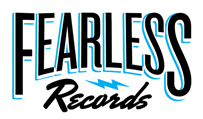 Reality check!
Reality check!
So you have the music, the show, the look. You figure that all the business stuff just needs to be handled by someone else. I mean, you are just that good. All you need now is the management, the booking agent or the label to make it happen. That’s how it works, right? You can still make a fortune, right? You are the artist, you don’t have to deal with the business end of things at all. Right?
Wrong! And your inability to see reality will ensure that you remain unnoticed, unheard and penniless.
Musicians who are disconnected from reality seem to ignore that a period of development has to take place first. If you haven’t developed the business side of your career and are just expecting it all to be handled by someone else, then you’d better be patient, because it's likely to take a while—and a whole lot of money. And if you are not personally funding your development, then you’d better believe your prospective manager will not only be looking for a return on his investment in your project (with interest), but will also want a pretty big piece of the pie seeing as how he stood behind you when no one else would.
Lastly, in that scenario, don’t forget you are now more than likely locked in a contract that will give this group or person percentages of your income well after you have moved on.
Also keep in mind that many managers, agents and labels need to justify spending the time or money on you. The more you cost, the bigger the chance they are taking on you, and the more you will pay in interest and percentages down the line. When it comes to risk, it has nothing to do with your amazing song, it comes to the whole package. Think about this: you have heard some awful bands and awful songs that have gone through the roof to success and others that are so much better that don’t even tread water.
So when are you truly ready?
In an era where every dollar counts, why give it away when you don’t need to?
In an era where less and less money is being invested in bands, when it actually is invested these “backers” are owning as much as possible, so why give up all the extra control and money?
In an era when there are more and more bands that are a higher risk, why not be one of the safest and most secure bets?
Simply put, organize your branding, promotional and marketing materials. If you can hand off something already in place—uniform and prepared, that might only need a tweak or two—you are saving the time and money of that manager or agent and bringing you both closer to making the most money possible.
If you can record a great album with your own money—or with small investors or donors— to present and be used for sale, distribution and promotion, then you won’t have to be in the studio with a label, spending their money and time on creating a product you could have made DIY keeping more ownership rights. If you bring a final product to the table, they can spend the time on distribution and put support into the things that will make more money with less money to be recouped to various partners.
Patience now!
Prepare as much as you possibly can. Work the content, the bios, the taglines, the logos, the music, the social networks and websites as well as all the bells and whistles that you can afford yourself or find others who will only need their investment back instead of massive interest and wild percentages. Work to be your own agent or manager first. Build the product, the package and the plan, then go to the label, the manager or the agent and be able to use a higher echelon, more experienced and more effective person or team to work with what you have created. Be effective, productive and profitable right out of the gate.
Do the math!
An indie band who have some kind of representation can make $200,000 in eight months. But after you take out the percentages for all the tasks the band could have slowly done themselves, they are walking away with $20,000 before taxes. Divide that figure between four guys and the result is: each player didn’t make enough to live on for two months after the tour.
Those numbers are realistic. The percentage, though extreme, is far from an extreme in today’s industry. These bands who have played in front of thousands for months at a time are coming home in debt, needing to pick up jobs and stuck in contracts and agreements they can’t get out of.
The band who took a little longer, found investors and donors at a fair interest rate are able to pay back their investments and maybe, in a worst case scenario, they only bring in 50 percent. That is still $100,000; 25 grand for four guys is not too shabby. So patience is the rule.
Be careful!
Figure out what you can do, how you can do it and where you can find and raise the money to execute it. Be organized, be patient and be wary of any offers coming in to take care of everything for you, because when someone or some group comes in to “take care of everything for you,” you better believe they plan on taking everything they can for themselves.
LOREN WEISMAN is an accomplished music producer and consultant based in Seattle, WA. Having worked on hundreds of albums, studio productions, and tours as both a drummer and producer, he's gained a spectrum of insight on the music industry as a whole. Weisman is the author of The Artist’s Guide to Success in the Music Business. http://artistsguide.net.












